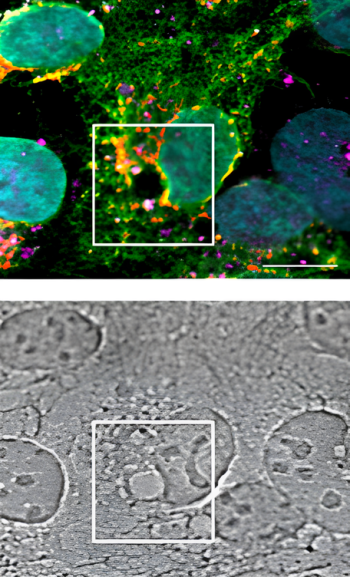23 Aug 2024 - New insights into specific roles of key kinases in ER-phagy
Based on a previous screen in which key kinases of ER-phagy/reticulophagy regulation were identified, the team of IBC2 and BMLS group leader Alexandra Stolz now reveals further insight into the specific roles of two kinases: ATR and CSNK2 (also known as CK2), which both significantly impact ER-phagy flux and act downstream of autophagy master switch MTOR. ER-phagy, or the selective degradation of the endoplasmic reticulum (ER), is vital for cellular homeostasis.
Notably, inhibition of CSNK2 has been shown previously to block the ubiquitination of key ER-phagy receptors and prevented the formation of high-density clusters necessary for efficient ER degradation. In this addendum, the research group demonstrated that both ER and Golgi proteins started to accumulate upon CSNK2 inhibition, while the protein levels of other organelles were not affected. This discovery suggests that the role of CSNK2 is limited to ER- and Golgi-phagy. In contrast, ATR inhibition demonstrated a broader impact, affecting multiple organelles and influencing selective autophagy pathways. In addition, a vesiculation phenotype was observed, leading to the hypothesis that ATR inhibition is initiating a specific necrotic cell death mechanism named methuosis, which is exacerbated by ER-phagy.
These findings, supported by global proteomics data, reveal the distinct roles of CSNK2 and ATR in regulating selective autophagy. The crosstalk between methuosis and autophagy
is a very exciting finding which remains to be further explored, as it may lead to therapeutic strategies enabling a faster and more accurate clearance of malignant cells.
